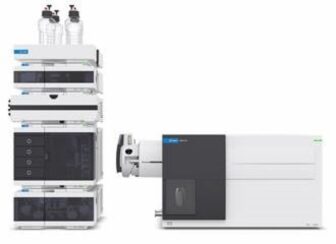By McKOY SCRIBNER
Capital News Service
LANSING — The Department of Environment, Great Lakes and Energy is expanding its testing capacity for monitoring a family of so-called “forever chemicals” called PFAS.
For several years, the department’s laboratory in Lansing has been able to check only drinking water for PFAS contamination.
With new equipment, testing in the lab can now expand to include surface water, groundwater, wastewater and soil.
Researchers say exposure to high levels of PFAS may harm the human and animal immune systems, including possibly reducing antibody responses to vaccines and reducing resistance to infectious diseases.
“Because COVID-19 is a new public health concern, there is still much we don’t know. More research is needed to understand how PFAS exposure may affect illness from COVID-19,” the federal Agency for Toxic Substances and Disease Registry says.
In addition, the agency says high PFAS exposure levels may be linked to increased cholesterol levels, changes in liver enzymes, increased risk of high blood pressure in pregnant women, slightly lower infant birth weights and increased risk of testicular or kidney cancer.
Department of Environment, Great Lakes and Energy communications officer Scott Dean says the new testing will make it easier for the state to monitor where PFAS are in Michigan.
“It’s something that we’ve been doing for quite some time, but often we’ve had to rely on certified private laboratories to do the testing since the testing for PFAS is very complicated, very sophisticated testing,” Dean said.

Department of Environment, Great Lakes and Energy.
PFAS testing equipment at a Department of Environment, Great Lakes and Energy laboratory. Department staffers now have an instrument dedicated to, and available, for environmental analyses.PFAS, or per- and polyfluoroalkyl substances, are a collection of manufactured chemical compounds that have been widely used in a number of consumer and commercial products.
They’re especially known for being used in water-resistant substances and in firefighting foam to extinguish petroleum-type fires.
Even after decades of use, they do not break down easily in the environment, scientists say. The chemicals have been linked to cancer and developmental problems.
Dean said expanding testing capacity gives Michigan the opportunity to become a leader in PFAS action response.
“And by having this equipment in-state, it’s going to allow us to keep up the work we’ve been doing for a number of years now to address PFAS contamination,” he said. That allows for more testing in-state and should provide faster results and the ability to test for more chemicals, Dean said.
The new equipment can test for 30 different analytes — substances that are the subject of chemical analysis – of PFAS and reliably report results with low detection limits. The current drinking water method only tests for only 18 analytes.
Tests using the new equipment should start in 2022 after proper training and protocols are in place, he said.